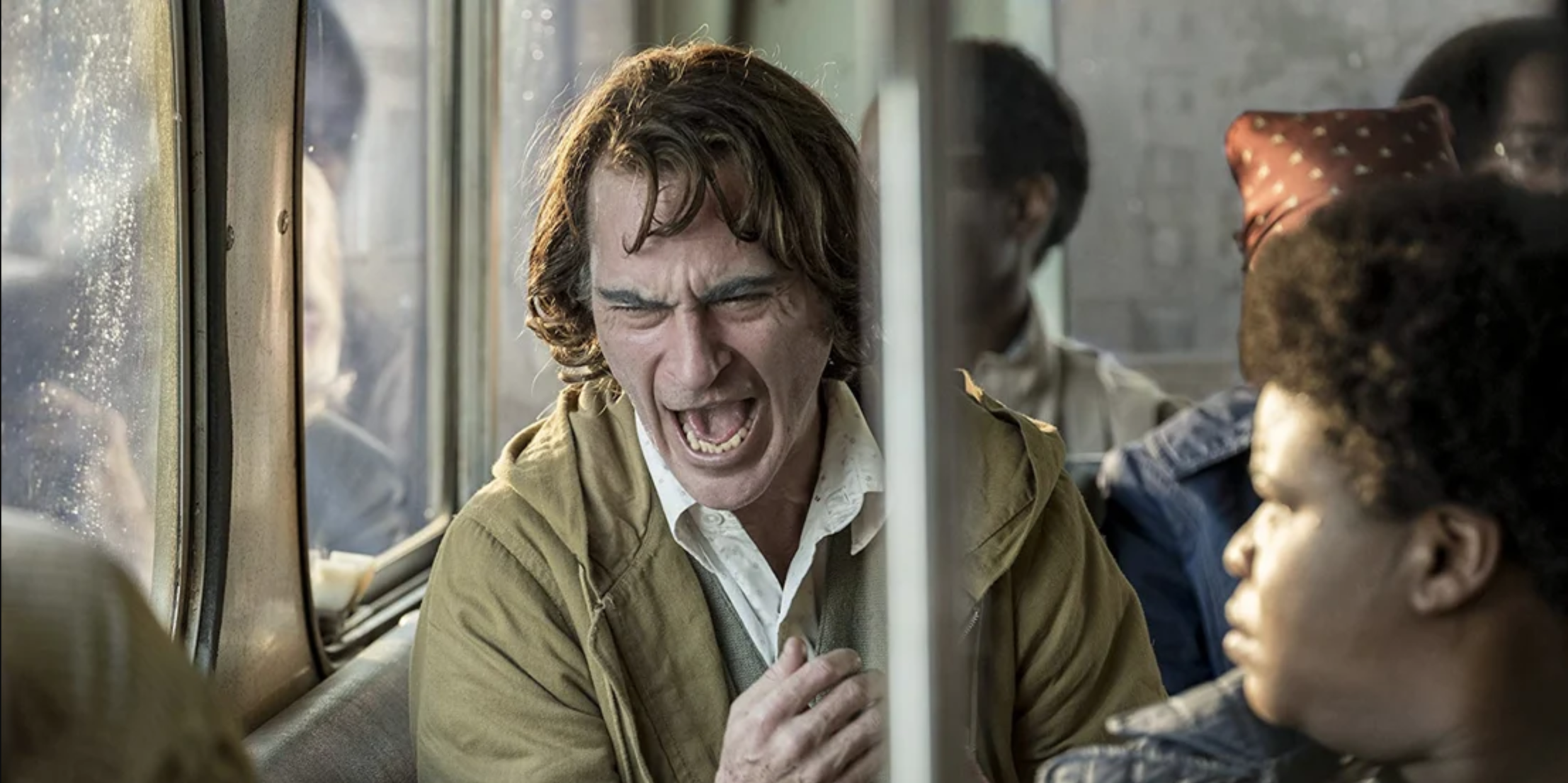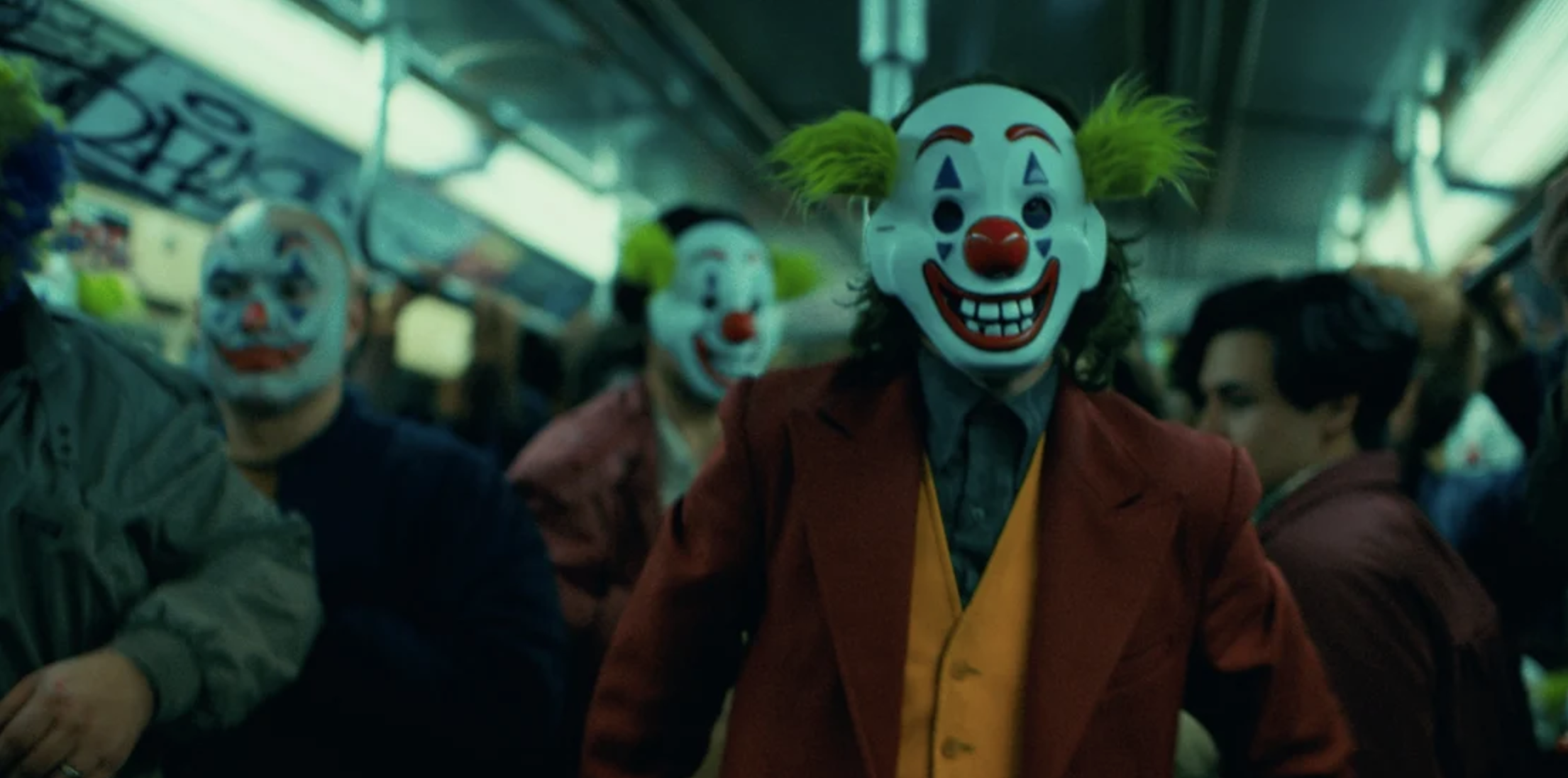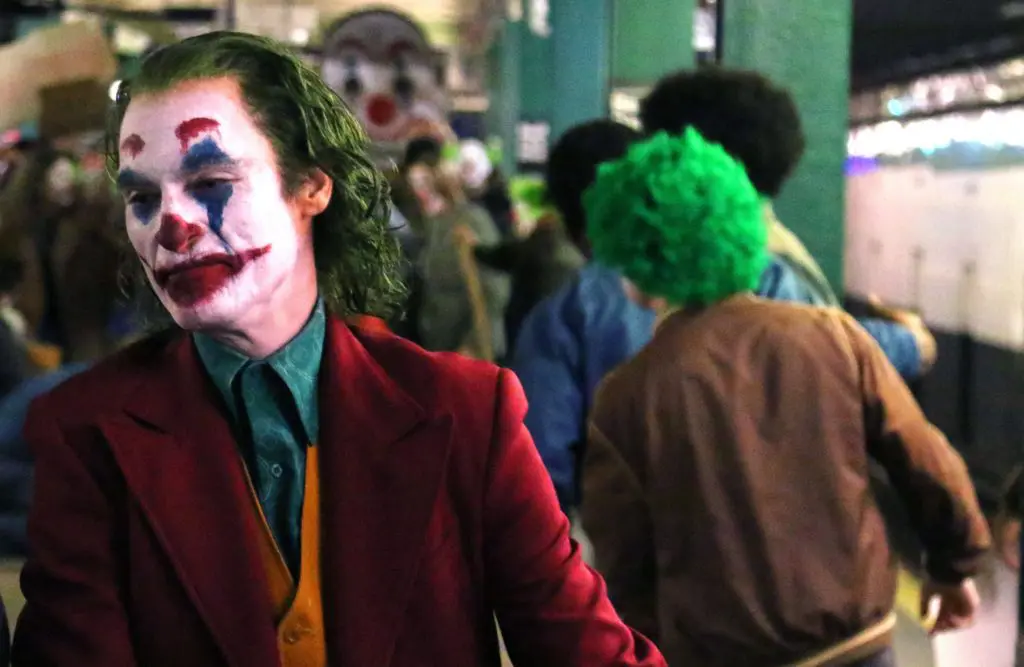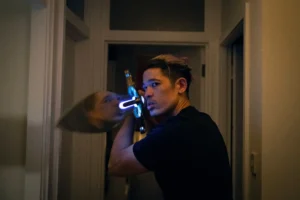Summary
Todd Phillips’ epic chronicling of the rise of Gotham’s favorite anarchist is both masterful and amoral, begging for a hero to stop him. At the same time, Joaquin Phoenix gives an otherworldly, undeniably Oscar-worthy performance that transcends the movie’s muddy message.
There are MANY spoilers here.
With Joker, Todd Phillips presents a world hyperrealistic in its cruelty, cruelty so profound and pervasive that it creates monsters. This world is our own – just look at the news. However, Joker also portrays the stunningly, dangerously skewed way that people today see their way out of this world: by placing blame on others and then killing them. We live in a world where many rich people do many horrible things, where governments cannot fulfill a promise of help to their helpless citizens. And we live in a world where some long, disturbed individuals lash out upon the innocent, all in the name of overturning broken systems. This is the Joker’s rallying cry, and it’s all too familiar.

Joker, first of all, is a phenomenally crafted film, truly superb on many levels. Joaquin Phoenix is scary brilliant, depraved, at once controlled and manic in his performance. Phoenix is absolutely astounding, brutally raw as Arthur Fleck. He has contorted his body so completely and subtly to become The Joker. Every aspect of his performance is nuanced and measured, even in its insanity. He has three laughs which tell you what he’s actually going through. Phoenix performs on another level entirely from other actors today. He gives an utterly Oscar-worthy performance. I mean, give it to him right now. Full stop.
Moreover, the sense of place is so wholly palpable. Gotham city is grimy, decaying—it’s the city we see in Christopher Nolan’s Dark Knight trilogy. It heartlessly stomps on the already downtrodden and vilifies the bigoted, bloodthirsty rich. It is the vacuum left behind after the dying middle class has faded, leaving only the haves and have-nots—there are no have-somes. Billionaire Thomas Wayne‘s traditionally saint-like character is thoroughly destroyed in the course of Joker. Batman’s father sneers: “People who’ve made something of their lives will always see those who didn’t as clowns.” Gotham’s rich do nothing but look down on the peons that barely deserve to breathe the same air.
And that breeds the Joker from Arthur Fleck, a horrifically treated, mentally ill man who bears the consequence of society’s every sin. He’s the innocent (at first) embodiment of every societal ill, the product of corruption. His mother failed him; the system failed him; society failed him. And he’s the hero of this film.

During the course of Joker, Arthur transforms into the titular villain. But here, Joker wants us to sympathize with him, the amoral savior of this beaten-down world. We empathize as he learns to inject anarchy into the world so that he can feel alive. He cathartically kills the evil rich (who, admittedly, were horrific to him – as are everyone else), which leads to a full break from his broken shell of a man into a confident new one. The evil rich people and the government have forged in Arthur a delusional, dangerous monster, and they deserve everything they get. In his mind: You kill rich people, you gain confidence, you get to sleep with a girl, you get booked on your idol’s show for standup (actual). Joker becomes a rallying cry for the downtrodden who don their own masks with a mission — kill those who have money and power; destroy society, and you’ll gain that power yourself.
At the climax, he kills late-night TV host Murray Franklin (Robert De Niro) and gets arrested as the city burns. Killing some of the most notable rich Gothamites—including Franklin, his idol—is the beginning of Arthur’s apotheosis. With this act, the whole city rallies around the symbol of the Joker, their anarchical savior. They rise and protest in his name against the evil rich. Tearfully, with true joy he paints a smile on his face in blood — he’s happy for the first time in his life. Yet Joker believes in nothing: “The protests? I don’t believe in all that. I don’t believe in anything.” Rescued by one of those masked clowns, one of whom kills Thomas Wayne, creating the Batman. Finally, he becomes the Christ-figure for a mob of clown-masked rioters who pulled him out of a burning cop car, mimicking Christ being cradled coming down from the cross, laying him out, spreadeagled and dead-looking until he rises in terrifying glory before the murderously cheering rioters.
I can’t say for sure that the Joker filmmakers truly intend to glorify Joker, to back his anarchical views. But it does. I can’t say that it agrees with turning society upside down, burning and looting and pillaging in the name of revolution. But it does by not giving clear closure.
I don’t call for censorship or anything like that–I call for thoughtful viewing. This should be a cautionary tale, a tale of a man let down by the world around him. Not all wealthy people are evil, and we should certainly not call for their deaths. Our society needs fixing, but we should certainly not glorify its violent overthrow. Joker is a cautionary tale, but it’s one without the victory, the conclusion that we need. However, the film also ends on a definite note of triumph for Joker. His victory of inciting chaos and bloodshed is praised. Should it end that way? In short, Joker lacks the Batman: the symbol of hope in the midst of that chaotic Gotham night. Without him, we’re left in entropy, in a world spinning out of control, begging for a hero.




